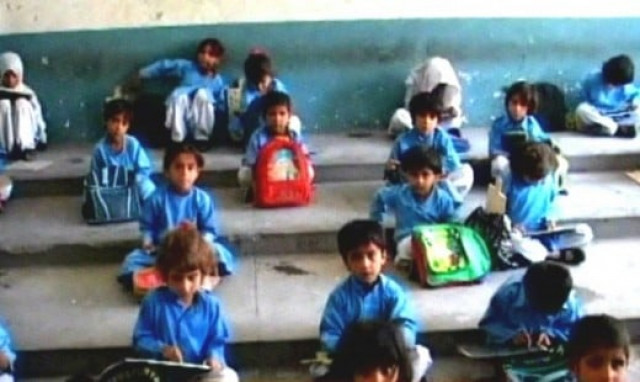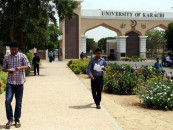Lost cause: ‘Poor public education will lead to a bloody revolution’
Survey reveals the sorry state of affairs of public sector education.

Survey reveals the sorry state of affairs of public sector education. PHOTO: FILE
Facts and figures pertaining to the current state of affairs of public schools have been revised after a survey but they only reveal the continuous breakdown of the public-sector education in Sindh.
The government has helped Leadership for Environment and Development (Lead) and other organisations pinpoint shortcomings in the public education system. What comes across as ironic is the demand for a ‘bloody revolution’ by policymakers who were once at the helm of affairs or in a position to make a difference.
Statistics do not, however, account for the emotional distress suffered by people but they do provide a scenario on how to make things better as evident in the survey compiled by Lead, Ilm Ideas and UKAid, following assessments in two districts - Khairpur and Sukkur. The findings were shared in a discussion on ‘Strengthening Governance of Education Sector through Public Oversight by Communities in Sindh’ on Thursday.

The basic barriers to school enrolment at the home and community level are lack of awareness. Meanwhile, poverty school expense, gender disparity and cultural barriers also prevent children from attending schools. SOURCE: LEAD PAKISTAN
“I did not educate my children at government schools because I knew these schools were not up to international level,” said Mehtab Akbar Rashidi. She was of the view that her children wouldn’t mind sitting on broken chairs or attending classrooms without fans as long as the quality of education was up to the mark.
Urging people to stand against those people responsible for the deplorable condition of public schools, Rashidi said that it was time for a ‘bloody revolution’ as they were accountable for future generations. “The community has to rise and take things in their hands because I can’t imagine what can be worse than the current situation.”
Experts believed that 50 per cent of the corruption can immediately be reduced and progress can be made through legislation which makes it mandatory by for legislators, ministers, secretaries and other government officials to send their children to government schools. The suggestion was seconded by many.
“Enrol the children of legislators in government schools and things will start changing,” said Pakistan Muslim League - Nawaz MPA Sorath Thebo. The belief that the rich can afford private education and the rest do not matter will cause a ‘bloody revolution’, said Thebo, adding that the nation was not sincere for the future of its children.
Muttahida Qaumi Movement’s Naheed Begum said that over 4.2 million children were out of schools in Sindh. What will be the future of these children in the coming days is a tough question to answer, she added.
Community ownership
Highlighting the need to educate children in their mother tongue, Anita Ghulam Ali, a former education minister, said that competency and understanding of students will be better if they were taught in their mother tongue till class five.

Teachers’ attendance was 87 per cent and 89 per cent in Sukkur and Khairpur respectively, considerably more than the students’ attendance recorded at 47 per cent in Sukkur and 60 per cent in Khairpur. SOURCE: LEAD PAKISTAN
In her experience, communities are uneducated but they are not ignorant. “Educate and empower communities because community ownership ensures sustainability of projects,” said Ali.
Isra University’s chancellor Dr Asadullah Qazi supported the notion of educating children in their mother tongue. He warned, however, that this policy shouldn’t affect other languages. “Introduce Sindhi language but not at the cost of other languages.”
Sadiqa Salahuddin of Indus Resource Centre said that parents entrust their children with the schools for more than 10 years in the hope that they would become educated but in the end they can’t even write an application in their mother tongue.
Mazharul Haq Siddiqui, a former vice-chancellor of Sindh University, said that he was disappointed to see the bleak picture of the education system but not hopeless.
Published in The Express Tribune, November 8th,2013.



















COMMENTS
Comments are moderated and generally will be posted if they are on-topic and not abusive.
For more information, please see our Comments FAQ